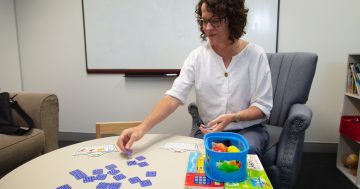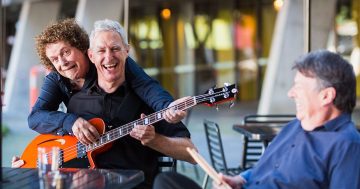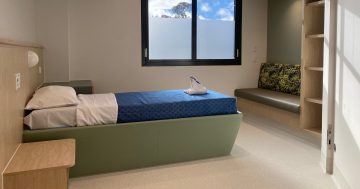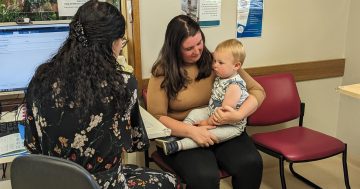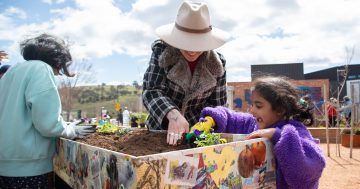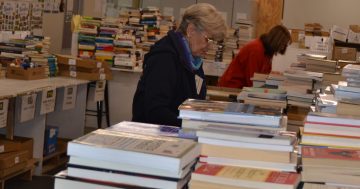
Belconnen Community Service registered arts therapist Su Hanfling says art therapy can be calming. Photo: Supplied.
Recently, there has been a lot written about how creating art can be used to improve mental health and wellbeing. Belconnen Community Service (BCS) registered arts therapist Su Hanfling works with children, young people and adults in the BCS art studios and has been heartened to see that creativity has flourished during the current COVID-19 isolation period.
“Whether it be by decorating homemade bread, dressing up in costume to take out the bins, singing in a virtual choir, drawing with chalk on the footpath, or going online to learn how to make a milk-container dinosaur, people have embraced the opportunity to create and connect.”
Su says creativity is important for humans. “From Australia’s earliest human history, Aboriginal and Torres Strait Islander communities told their stories through song, dance and by using pigments from the earth to make art,” she says. “These essential creative practices continue today in many different forms.”
Art therapy is a little different from making art for pleasure and relaxation, says Sue. “I recommend both! Expressing ourselves using art can be relaxing and calming. Playing with colour, shaping clay, making patterns with leaves in the park, and taking photos of a beautiful scene are all ways of slowing down and being mindful.”
Sue says arts therapy takes this creative connection one step further. This specialist field focuses on the therapeutic aspects of art-making supported by a mental health professional. A recent report from the World Health Organization investigated arts-based therapies from more than 3000 studies and found “a major role for the arts in the prevention of ill health, promotion of health, and management and treatment of illness across the lifespan”.
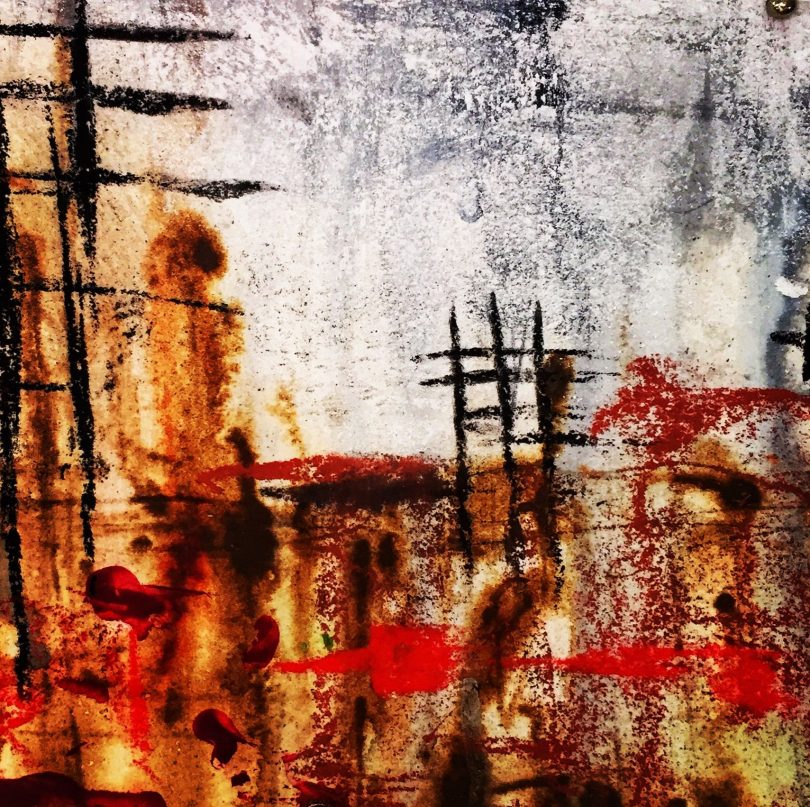
Arts therapy focuses on the therapeutic aspects of creating art supported by a mental health professional. Photo: Supplied.
“Arts therapy provides a safe and confidential space for a person to express complex feelings when words might not be available,” explains Su. “It can help to make sense of a difficult or traumatic experience, explore solutions to challenges, and find a way forward.
“The focus is on the connection and the process, not the outcome – so you don’t need to be ‘good’ at art to do arts therapy.”
Arts therapists work with people from diverse backgrounds and experiences.
“It’s so important the arts are accessible for everyone so we can hear all of the voices that tell the intersecting stories of our entire community,” says Su. “Accessible might mean, for example, making sure the right equipment and materials are available, being culturally aware, and ensuring everyone feels safe and respected.
“One of my favourite activities is working with people who come to the BCS art groups. It is always exciting to see people make art for the first time, reconnect with an art practice they enjoyed in the past, or achieve a creative or other personal goal. The thing that strikes me the most is the kindness shared in these diverse and inclusive groups.”
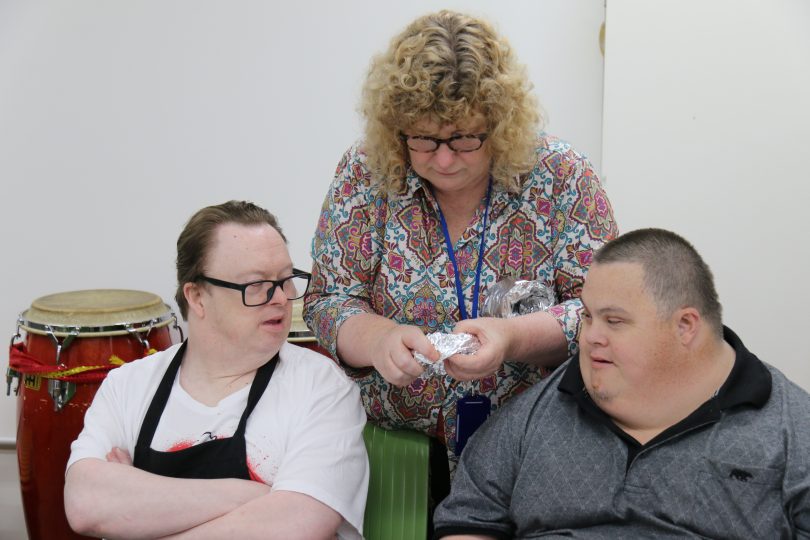
Su Hanfling consulting with two BCS artists, Cal Jones (Left) and Tony Di Crescenzo (Right). Photo: Supplied.
In Australia, New Zealand and Asia, registered arts therapists have a Master’s degree in Arts Therapy, with 750 hours of supervised clinical placement. Training is intensive and research-based, and focuses on psychology, counselling and art psychotherapy. Therapists must update their knowledge every year with professional development training.
“I completed my Master’s at Western Sydney University,” says Su. “My clinical placement was working with children and young people on the autism spectrum at Giant Steps school in Sydney. I loved working with these young people and learned so much from them about the many ways of sensing and relating to the world. I continue to incorporate sensory awareness activities in my work.”
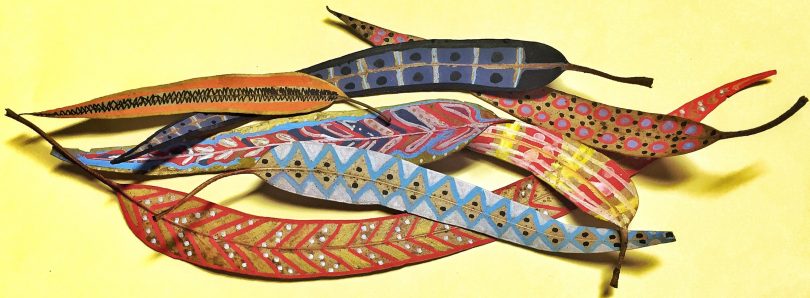
Painted gum leaves created by Su Hanfling in her regular art class. Photo: Supplied
There are almost 800 registered arts therapists in Australia. Su has worked in schools, hospitals, community-based services, private practice and as a lecturer at the University of Canberra. You will also find arts therapists in hospices, museums and galleries, aged care services and many other community settings.
To find other registered arts therapists, check the Australian, New Zealand and Asian Creative Arts Therapies Association (ANZACATA) website.
Belconnen Community Service currently has limited arts therapy vacancies for new participants who have an Improved Daily Living budget for therapies in their plan. Meetings are currently online due to COVID-19.
For more information, call 02 6264 0200 or email: bcs@bcsact.com.au.
Belconnen Community Service is a registered NDIS provider.












